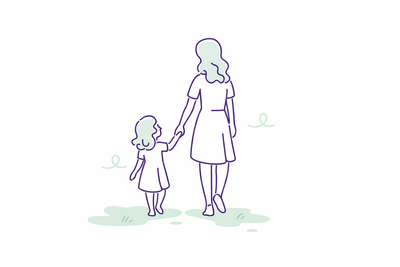
As every year, I recently attended the Happily Family conference about parenting. This year, the chat I loved the most is the one with Dr. Christine Carter about teaching happiness to kids.
I’ll be honest, my first (selfish) thought when I read the title was, “Teach happiness? If I can teach happiness to my kids, maybe I can also learn it for myself”. And I was right, I feel that a lot of what Dr. Carter said works for kids and adults alike.
This is not a blog post per se, it’s more of a list of ideas and concepts that made me think (which I love!). I hope you’ll like it, too.
- Is happiness a trait of a person? There is a genetic component that makes it easier for some people to experience something like awe or optimism, but happiness is more of a set of skills. (This is always a good reminder for myself, as I’m a naturally half-empty-glass kind of person).
- When we pursue happiness for other people—which doesn’t only mean to make other people happy, but to reduce suffering, and bring ease into other people’s life—we tend to find happiness for ourselves, too. This happens when we combine happiness with meaning.
- Teaching happiness through meaning to kids can be as easy as asking a simple question at the dinner table: “What did you do today to make somebody else’s life better?”.
- The sense of being connected socially is the key not just to meaning, but also to happiness. Our social connectors—the depth of our social connections—are the best predictors of happiness that we have.
- How do you get an introverted kid to make connections? Often we tell our kids to go play with other kids, strangers to them, at the playground, but we never really teach them how to start making friends. Some kids (and some adults, too, like myself) have it easy, they’re natural at making friends. For introverted kids (or introverted adults, like my husband) it’s useful to teach them how to make friends by giving them tools: 1. make eye contact; 2. start a conversation, small chitchat (in Oliver’s case I imagine it being something like, “I have the same ball” or “I like your bike” or “look at my pinecone”); 3. Ask questions (what’s your name? where do you live? do you like pizza?); 4. Reveal something about yourself (for adults, go from shallow to deep, you don’t want to start with your darkest secrets ;-).
- Talk to kids about what positivity is. It’s not about being happy, but seeing something positive in the discomfort, in the challenge, when facing an obstacle.
- Life is discomfort: we need to teach our kids that discomfort is OK. We shouldn’t take their discomfort away: let’s not make up for their mistakes, let’s not jump in and try to make them comfortable every time they’re uncomfortable, let’s not try to “make better” something that is embarrassing or disappointing, let’s let them experience embarrassment and disappointment. This is the only way they’ll learn to deal with every day discomfort, to have compassion for themselves, to learn from their mistakes so they won’t do them again tomorrow.
- The best parenting tool that there is to validate what our kids feel, their emotions, to let them know you understand them. And to teach them the difference between feelings and behaviours. All feelings (sadness, rage, embarrassment, disappointment, happiness) are ok. All behaviours are not.
And I’ll leave you with two sentences from other chats that got stuck in my mind. They’re up for interpretation as I think anybody can find a bit of truth in them, or something that they can relate to:
You take yourself too seriously. A little less you will make you a lot happier.
When we compare ourselves to others we’re comparing the front of other people to the backstage of ourselves. Remember, imperfection is part of the human experience.
































